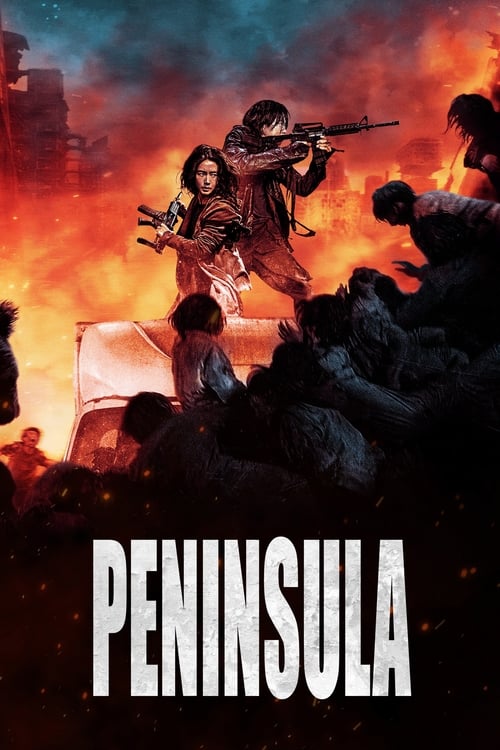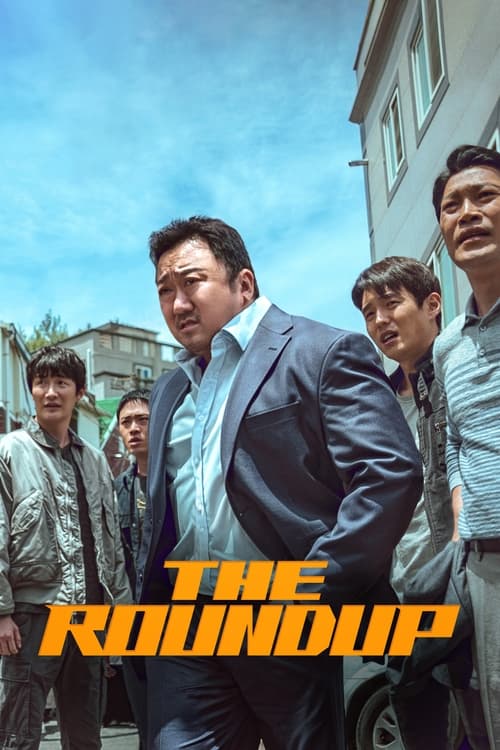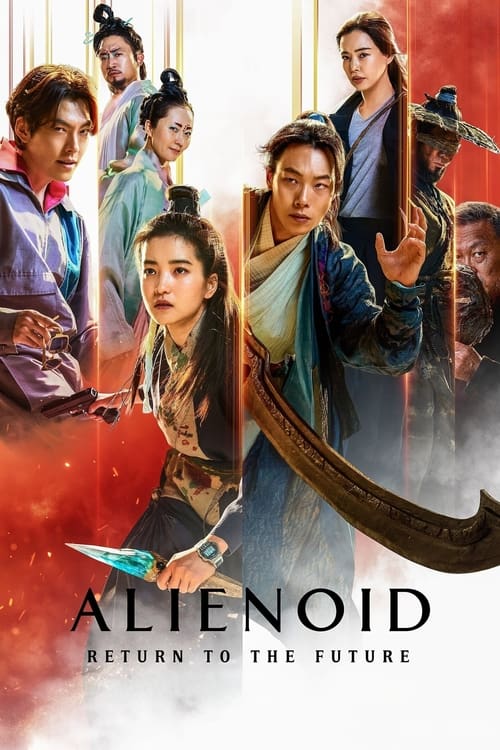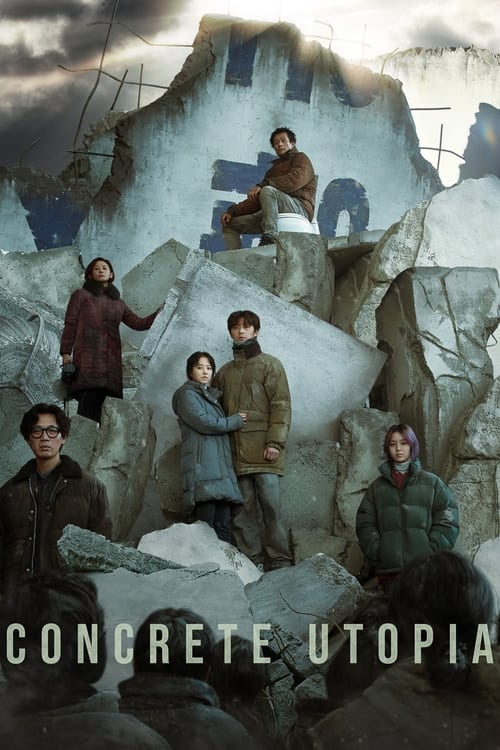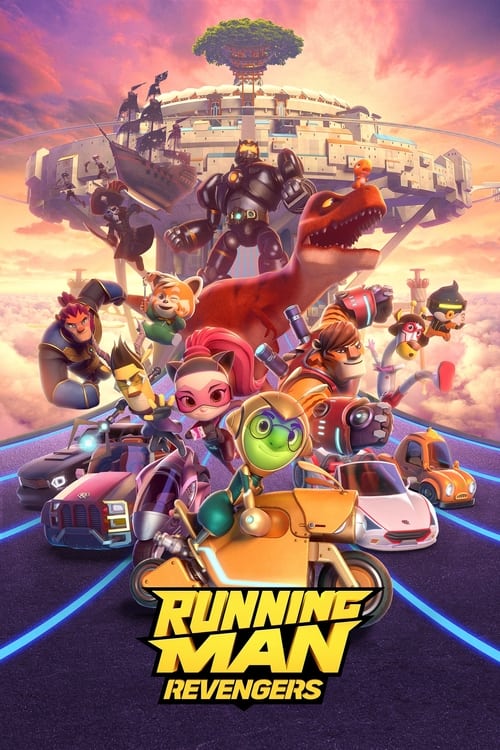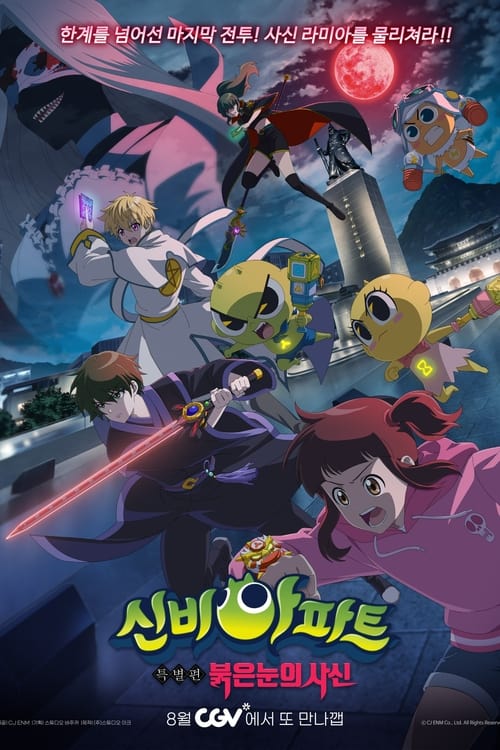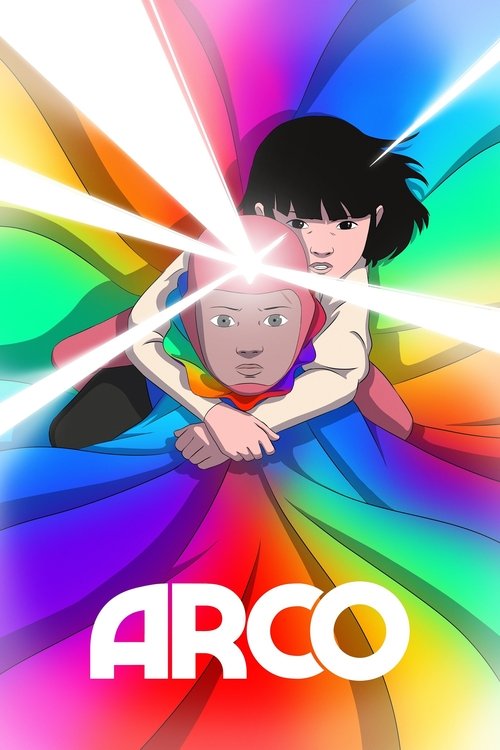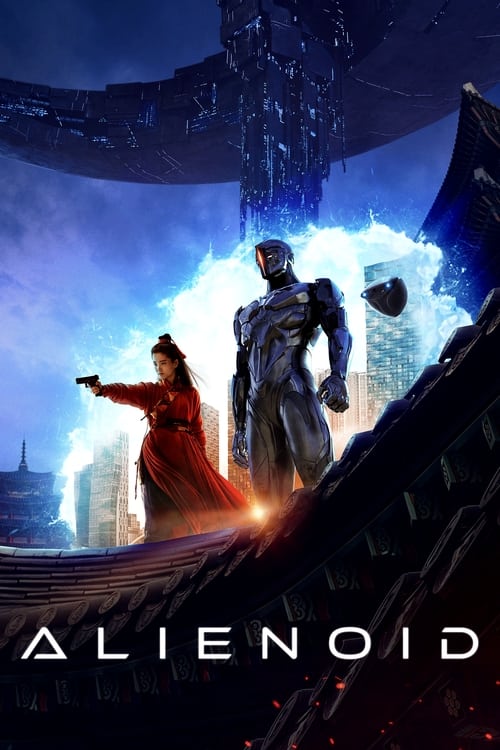
Ask Your Own Question
What is the plot?
The film opens amid the chaotic early days of the zombie outbreak in South Korea. Jung-seok, a ROK Marine Corps officer, is driving his elder sister, her husband Chul-min, and their young son Dong-hwan toward an evacuation ship near Busan. The air is thick with panic and despair as South Korea rapidly succumbs to the infection. On the road, they encounter a desperate couple--a bleeding man and his wife Min-jung, who pleads for help with their young daughter Yu-jin. Jung-seok, hardened by the grim reality, coldly refuses to give them a ride, choosing survival over compassion. This moment haunts him deeply, setting a somber moral tone for the story to come.
Four years later, the Korean peninsula is a quarantined wasteland, overrun by zombies and lawless factions. Jung-seok and Chul-min live as refugees in a grim, impoverished Hong Kong. Their lives are bleak, marked by regret and hardship. They are recruited by Chinese mobsters for a dangerous mission: return to the zombie-infested peninsula, retrieve an armored truck loaded with $20 million in cash, and escape by boat. The promise of half the money offers a chance at freedom and a new life, but the risks are immense.
Jung-seok, Chul-min, and two other Korean refugees infiltrate the peninsula under cover of night. They locate the truck, killing the zombie driver in a tense moment that immediately draws a horde of the infected. The group narrowly escapes with the vehicle, but their troubles multiply when they are ambushed by a rogue militia known as Unit 631, a brutal gang of ex-soldiers who have devolved into sadistic marauders. Sergeant Hwang leads the ambush, and Captain Seo, an unhinged and violent figure, commands the unit with ruthless cruelty.
The ambush results in a catastrophic vehicle crash. One of Jung-seok's team dies instantly in the wreck, and another is mercilessly executed by Sergeant Hwang's men. Chul-min hides inside the armored truck, while Jung-seok flees on foot into the ruins. Alone and desperate, Jung-seok is rescued by two sisters: Joon-yi, a fiercely skilled driver with remarkable control over their battered SUV, and Yu-jin, the younger sister whose innocence contrasts sharply with the surrounding horror. They bring him to their fortified hideout, where their mother Min-jung and grandfather Elder Kim live. The reunion is charged with emotion as Jung-seok recognizes Min-jung and Yu-jin as the same mother and daughter he refused to help during the outbreak years ago. The weight of his past decision presses heavily on him.
Unit 631's depravity is revealed in chilling detail. They have transformed a shopping center into a gladiatorial arena where prisoners, including Chul-min, are forced to fight zombies for the soldiers' twisted entertainment. Chul-min's capture and brutal combat highlight the collapse of human morality in this post-apocalyptic nightmare. The arena scenes are visceral, filled with desperate violence and the grim spectacle of survival at any cost.
Jung-seok joins forces with Min-jung's family to escape the peninsula. They commandeer the armored truck and attempt to reach Incheon Port, the designated evacuation point where a UN relief helicopter awaits. Their journey is fraught with peril, as Unit 631 relentlessly pursues them. In a fierce chase through the devastated city streets, they manage to destroy several of the militia's vehicles, but Sergeant Hwang meets a grisly end, overwhelmed and devoured by zombies during the pursuit.
At Incheon Port, the tension escalates to a harrowing climax. Captain Seo captures Joon-yi, using her as a hostage to force his way onto the evacuation helicopter. Yu-jin bravely distracts Seo with her remote-controlled toy car, creating a crucial opening for Joon-yi to escape. During the ensuing gunfight, Elder Kim is fatally shot, and Min-jung sustains serious injuries. Despite her wounds, Min-jung's focus remains on protecting her daughters and ensuring their escape.
As the helicopter prepares to depart, Min-jung urges Jung-seok to leave her behind, insisting he save her daughters. She sacrifices herself by driving a truck through the zombie horde, blaring the horn to draw the infected away and buy precious time. Jung-seok, however, refuses to abandon her, haunted by his earlier failure to save his sister. With determination and grit, he drags Min-jung onto the helicopter just as zombies close in.
Chul-min, in a final act of heroism, sacrifices himself during the escape, fighting off zombies to allow the others to reach safety. Captain Seo, desperate and unhinged, attempts to force his way onto the helicopter but is coldly rejected by the soldiers. Left behind, he screams in fury and terror as the zombies engulf him.
The film closes with Jung-seok, Min-jung, and her daughters Joon-yi and Yu-jin flying away from the burning, zombie-ravaged Korean peninsula. Their survival is bittersweet--marked by loss, sacrifice, and the hope of a new beginning. The arrival of Major Jane, a UN medic referenced earlier by Elder Kim, confirms that rescue and aid await beyond the devastated land, offering a glimmer of hope amid the apocalypse.
Throughout the story, the tension builds relentlessly--from the initial moral crisis to the brutal encounters with Unit 631, the gladiatorial horrors, and the desperate chase to the evacuation point. Every death, from the nameless team members to Elder Kim and Chul-min, underscores the high stakes and the cost of survival. Jung-seok's journey is one of redemption, as he confronts his past failures and fights to protect those he once abandoned, culminating in a final act of courage that saves lives and restores his humanity.
More Movies Like This
Browse All Movies →What is the ending?
In the ending of "Peninsula," the main character, Jung-seok, and his group manage to escape the chaos of the zombie-infested city. They confront the mercenaries and ultimately find a way to rescue the children they had been trying to save. The film concludes with a sense of hope as they drive away from the devastation, but the future remains uncertain.
As the climax of "Peninsula" unfolds, we find Jung-seok, who has been haunted by his past experiences in the zombie apocalypse, now facing a new set of challenges. After a series of intense confrontations with the mercenaries, he and his group, which includes the brave siblings, Min-jung and her brother, are determined to rescue the children they had discovered earlier.
Scene by scene, the tension escalates. Jung-seok and his team, having infiltrated the mercenaries' stronghold, engage in a fierce battle. The mercenaries, led by the ruthless Captain Seo, are relentless, and the stakes are high. Jung-seok's internal conflict is palpable; he grapples with his desire to protect the innocent while confronting his own fears and regrets from the past.
As the fight intensifies, Jung-seok showcases his leadership and combat skills, rallying his team to push through the overwhelming odds. The emotional weight of the situation is heavy, as he reflects on the loss of his family and the guilt that has plagued him since the outbreak. Each character's motivations are laid bare; Min-jung fights fiercely to protect her brother, while the other members of the group are driven by their own personal stakes in the fight for survival.
In a pivotal moment, Jung-seok faces off against Captain Seo. The confrontation is brutal, filled with raw emotion as Jung-seok channels his pain into a desperate fight for survival. The scene is charged with tension, showcasing the desperation of both men--one fighting for redemption and the other for power.
After a harrowing struggle, Jung-seok manages to defeat Captain Seo, but not without significant cost. The group successfully rescues the children, and as they make their escape, the emotional toll of their journey weighs heavily on them. They drive through the desolate landscape, the remnants of the city in ruins around them, symbolizing the loss and destruction that the outbreak has caused.
As they reach a safe zone, the film closes on a note of cautious optimism. Jung-seok, now transformed by his experiences, looks out at the horizon, contemplating the uncertain future ahead. The fate of each character is left somewhat open-ended; while they have survived the immediate threat, the world remains a dangerous place, and their journey is far from over. Jung-seok, Min-jung, and her brother have forged a bond through their trials, hinting at the possibility of hope and resilience in the face of despair.
Is there a post-credit scene?
In the movie "Peninsula," there is indeed a post-credit scene that adds a layer of intrigue to the story. After the credits roll, the scene opens with a view of the desolate landscape of the Korean Peninsula, still ravaged by the aftermath of the zombie outbreak.
The camera pans to a group of survivors who are scavenging for supplies in a dilapidated building. Among them is a character who appears to be a leader, directing the others with a sense of urgency and determination. As they search through the debris, they come across a hidden stash of supplies, which brings a moment of hope and relief to the group.
However, the atmosphere quickly shifts when they hear distant growls and the unmistakable sounds of zombies approaching. The tension escalates as the survivors realize they are not alone. The scene ends on a cliffhanger, with the group preparing to defend themselves against the impending threat, leaving viewers with a sense of dread and anticipation for what might come next.
This post-credit scene serves to reinforce the ongoing struggle for survival in a world overrun by the undead, hinting at the possibility of further challenges and adventures in this bleak, post-apocalyptic setting.
What motivates the main character, Jung-seok, to return to the zombie-infested city?
Jung-seok is driven by a mix of desperation and guilt. After escaping the initial outbreak, he lives in a refugee camp in Hong Kong, haunted by his past and the loss of his family. When he learns about a potential cash reward for retrieving a truck filled with money from the abandoned city, he sees it as a chance to secure a better future for himself and his sister, who is also struggling in the camp.
How does the relationship between Jung-seok and the family he encounters evolve throughout the film?
Initially, Jung-seok is cold and detached, focused solely on his mission. However, as he interacts with the family--particularly the young girl, Min-jung--he begins to feel a sense of responsibility and connection. Their shared struggles against the zombies and the harsh realities of their world lead him to reconsider his priorities, ultimately making him more protective and selfless.
What role does the character of Captain Seo play in the story?
Captain Seo serves as a key antagonist in the film. He leads a group of mercenaries who are also searching for the truck. His ruthless nature and willingness to sacrifice others for his own gain create tension and conflict with Jung-seok. Seo's character embodies the darker side of humanity in a post-apocalyptic world, contrasting with Jung-seok's evolving sense of morality.
What are the main challenges Jung-seok faces while navigating the city?
Jung-seok encounters numerous challenges, including hordes of zombies, hostile survivors, and the treacherous environment of the city itself. He must use his combat skills and quick thinking to survive ambushes and navigate through dangerous areas. Additionally, the emotional toll of witnessing the suffering of others weighs heavily on him, complicating his mission.
How does the film depict the theme of survival through the character of Min-jung?
Min-jung represents innocence and hope amidst chaos. Her resilience and determination to survive, despite the horrors around her, highlight the instinctual drive to protect loved ones. As Jung-seok grows closer to her, her character serves as a catalyst for his transformation, pushing him to confront his own fears and ultimately choose to fight for a future rather than just survival.
Is this family friendly?
"Peninsula," the 2020 sequel to "Train to Busan," is not considered family-friendly due to its intense themes and graphic content. Here are some potentially objectionable or upsetting aspects that may affect children or sensitive viewers:
-
Violence and Gore: The film features numerous scenes of violence, including graphic depictions of zombie attacks and human-on-human violence, which can be quite disturbing.
-
Death and Loss: Characters experience significant loss and trauma, leading to emotional distress. The portrayal of grief and survival in a post-apocalyptic world can be heavy and unsettling.
-
Intense Action Sequences: High-stakes chase scenes and confrontations create a tense atmosphere, which may be frightening for younger viewers.
-
Themes of Despair and Hopelessness: The overarching themes of survival in a world overrun by zombies can evoke feelings of hopelessness and fear, which may be distressing.
-
Mature Language: The dialogue includes strong language that may not be suitable for children.
Overall, the film's dark tone and graphic content make it more appropriate for mature audiences.

